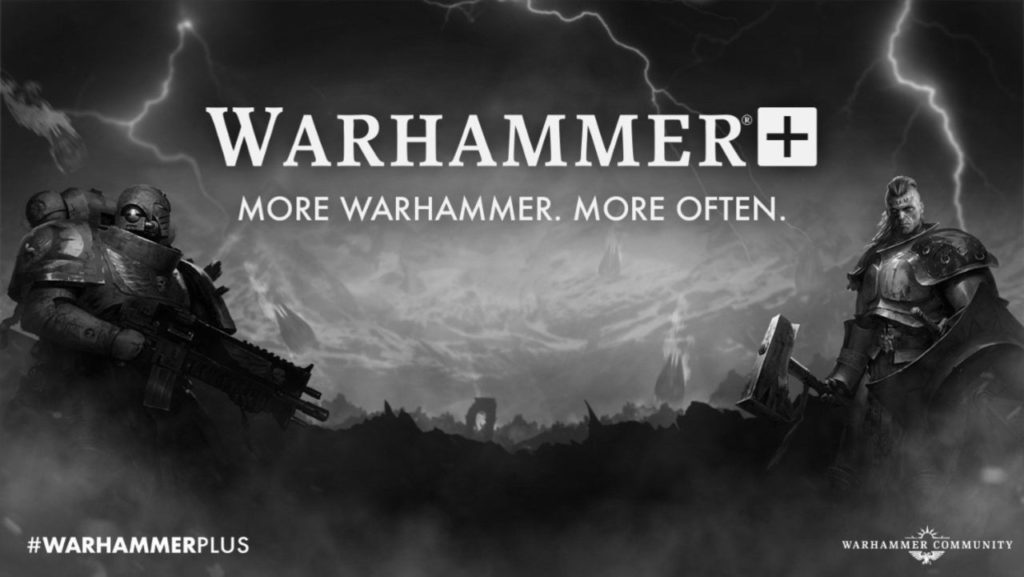
As almost all of you will have already heard, GW recently updated its intellectual property guidelines. In this document, GW clearly states that “individuals must not create fan films or animations based on our settings and characters. These are only to be created under licence from Games Workshop.”
The overall community response to this update has been, to put it mildly, rather negative.
And I can certainly understand these concerns. Indeed, I think that most people can appreciate just how frustrating this must be for many fans and, more importantly, for many creators who work in this space.
I really can’t imagine just how difficult it would be to spend dozens and dozens of hours working on an animated project that is set in the 40k universe and that uses 40k characters only to have GW inform you that, under no uncertain terms, your project must be scrapped.
But there is another side to this story. Ask yourself the following question: when it comes to GW’s intellectual property, does GW have a choice in the matter?
I don’t ask this question to be facetious. I think it is a very thorny issue.
I’m not going to get in to the details of IP law — it will surprise no one to learn that I would be entirely unqualified to do so — but for the sake of this article all that we need acknowledge is that it exists and that GW is subject to it.
There are, of course, many valid and appropriate criticisms of the UK legislation surrounding this area. Again, I am entirely unqualified to discuss these issues.
GW, then, has a right to protect its IP, and I would argue that if GW wants to maintain its own standards of quality, it has little choice but to produce animated films in-house or grant licence to creators who meet the appropriate standards.
Almost everyone reading this will have seen Astartes before it was taken off YouTube. There is no doubt: Astartes was an excellent project. And I very much hope and presume that this quality will remain now that GW has brought it in-house.
However, not all fan-made animations will maintain such a high standard. Indeed, many fan-made animations will fall short of the standards that GW sets for its content.
If quality is the main issue for GW, the company has two choices: in-house production or licencing.
I want to briefly mention another issue here. I have heard anecdotally that if a company does not defend its IP, it could be in danger of losing its IP rights entirely. While I could see how such an argument could be plausible, I want to again make clear that I have no expertise in this area. This claim might be true; it might not be true. I don’t know. For now, let’s put this point to one side.
Let’s take the least charitable reading of the situation: individuals in the community were making money from GW’s IP, and GW wanted a slice of the pie.
I have absolutely no doubt that this was at least part of the overall consideration. Money is a powerful motivator. If GW doesn’t make money, GW goes out of business. Everything GW does, to one extent or another, is in the service of the goal of making money.
But was money the sole motivating factor behind GW’s decision to change their intellectual property guidelines? It’s impossible to know for sure.
The release of Warhammer Plus would have certainly played a part in the decision. With GW building their own streaming platform, it stands to reason that less competition from YouTube would help get things off the ground. Better still, bringing content from YouTube, where viewers can watch for free, to Warhammer Plus, where viewers must pay, seems to be a sensible business decision.
And yet, Warhammer Plus will face plenty of competition from YouTube. While YouTube will no longer host fictional content set in the 40k universe, there is still plenty of Warhammer-adjacent content on the platform. The best painting tutorials and the best battle reports are on YouTube, and we know that Warhammer Plus will feature this kind of content.
And while Warhammer Plus won’t feature the same kind of content as the mainstream streaming platforms, it will still compete for its viewers’ time. It will be tricky enough to get fans away from the established platforms without strong content YouTube.
This is all to say that at least GW’s decision was understandable. I don’t know if it was the correct one. If I had to choose, I would say that it was, but I can still understand why many people are unhappy with the decision.
So where does this leave us? Overall, I think that if Warhammer Plus is a success — and the content that GW brought over to the platform from YouTube remains strong — then this issue will recede in importance over time. But if Warhammer Plus isn’t a success, I could see this issue sticking around for longer than GW would have liked.
And that’s the real issue, I think. GW needs to produce plenty of quality, watchable content that brings more people into the hobby. I’m still up in the air on whether I’ll watch the content on the platform. In all likelihood, I’ll pay for a month and see how it goes. However, I do have a feeling that much of the content isn’t going to be up to scratch. I’d love to be proved wrong, however, and I’m certainly going to give the platform and the content its due.
Fan-made content was always going to put GW in a tricky situation. If pressed, I probably would’ve done the same thing, and I’m certainly not going to hold a grudge if a company takes appropriate action to protect its property.
And remember, Frontline Gaming sells gaming products at a discount, every day in their webcart!
